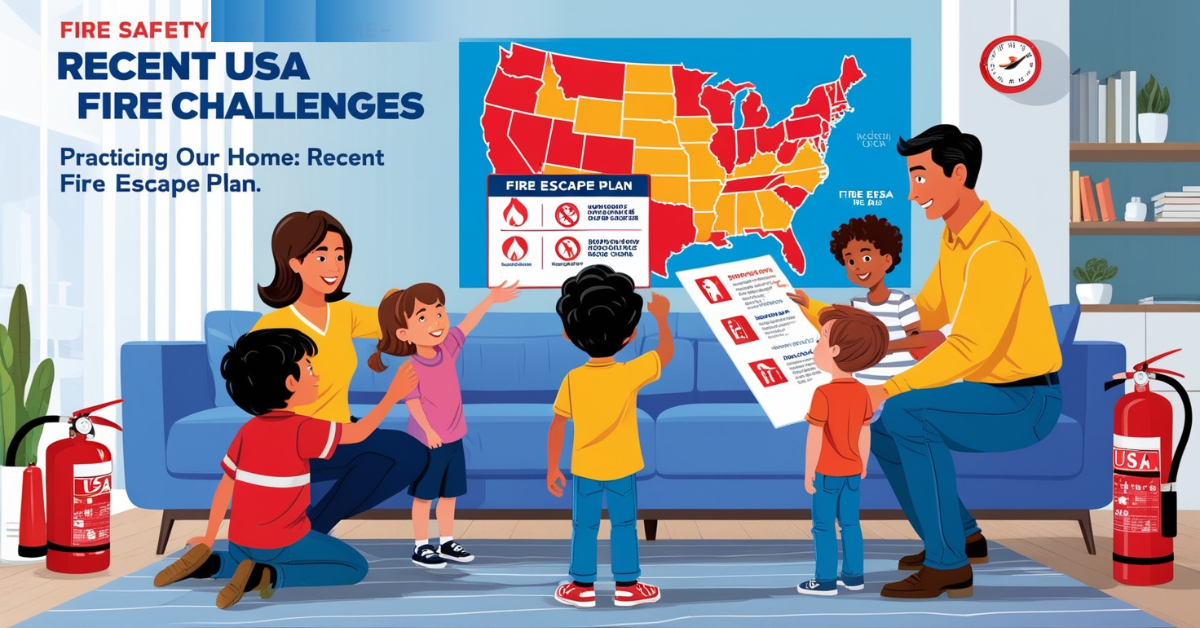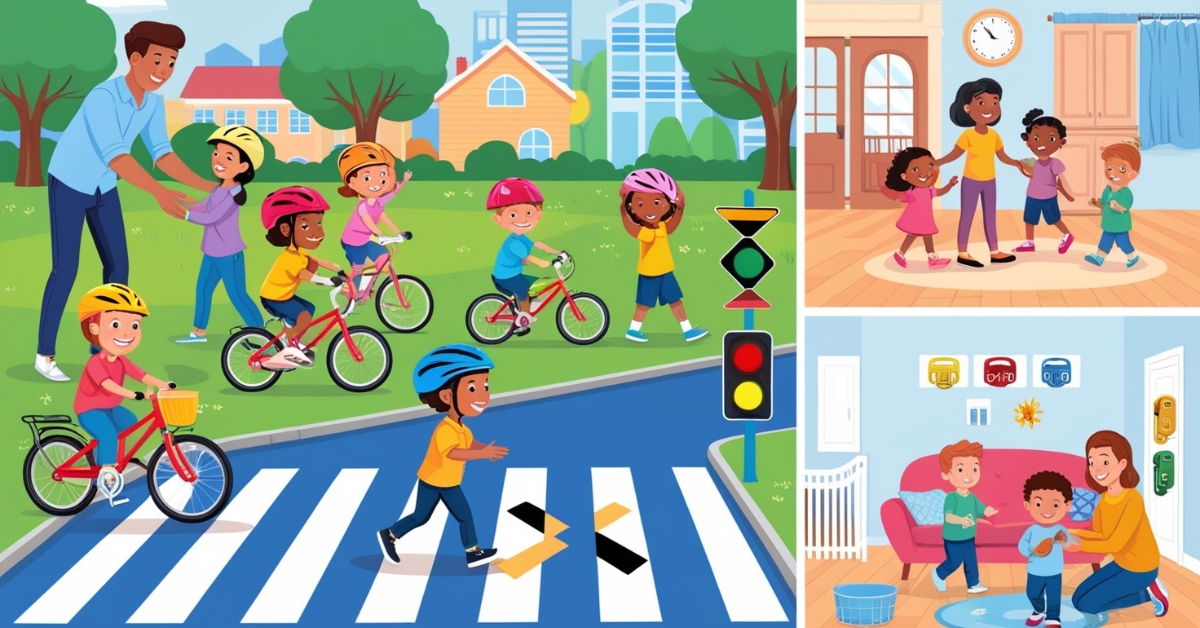
When it comes to keeping kids safe, fire safety is one of the most important things parents and caregivers need to think about. With the recent wildfires in Maui and an increase in house fires caused by faulty heaters during the winter months, fire safety is a hot topic across the U.S. Let’s break down the steps you can take to make sure your home is as fire-safe as possible and your kids are prepared in case of an emergency.
Understanding Fire Hazards at Home
What Causes Most House Fires?
In the U.S., house fires are most often caused by kitchen accidents, faulty electrical wiring, unattended candles, and heating equipment. Cooking mishaps alone account for nearly half of all home fires.
Where Are Fires Most Likely to Start?
The kitchen, living room, and bedrooms are common fire-prone areas. Kitchens, in particular, are high risk due to open flames and hot surfaces. Make sure these areas are clutter-free and that appliances are in good working order.
Why Fire Awareness Matters
Many people underestimate how quickly a fire can spread. A single spark can turn into a full-blown blaze in minutes. Teaching your family to recognize fire risks and act quickly can save lives.
Teaching Kids About Fire Safety
Making Fire Safety Lessons Fun
Kids learn best when they’re engaged. Use stories, games, and even apps to teach fire safety. For example, you can create a game where they identify “fire hazards” around the house.
Teaching “Stop, Drop, and Roll”
This classic technique is a lifesaver. Practice it with your kids so they’ll know exactly what to do if their clothes ever catch fire. Make it a fun family activity to keep it from feeling scary.
Explaining Smoke Alarms and Exits
Show your kids what smoke alarms sound like and explain why they’re important. Walk them through emergency exits and meeting points so they know where to go if they hear the alarm.
Making Your Home Fire-Safe
Install and Maintain Smoke Alarms: Smoke alarms are a must in every home. Place them in bedrooms, hallways, and living areas. Check them monthly and replace the batteries at least once a year. A working smoke alarm can double your chances of escaping a fire.
Keep Fire Extinguishers Handy: Have fire extinguishers in key areas like the kitchen and garage. The PASS method (Pull, Aim, Squeeze, Sweep) is easy to remember and effective.
Use Fire-Resistant Materials: Whenever possible, choose fire-resistant curtains, furniture, and rugs. These materials can slow the spread of a fire, giving you more time to evacuate.
Creating a Family Fire Escape Plan
1. Map Out Escape Routes:
Draw a floor plan of your home and mark at least two escape routes from each room. Practice using these routes during family fire drills.
2. Practice Fire Drills Regularly:
Fire drills aren’t just for schools. Practice them at home at least twice a year. Make it a family event and simulate different scenarios to prepare for real-life emergencies.
3. Assign roles during emergencies:
In the fire, every second counts. Assign roles like helping younger kids or grabbing the emergency kit. Clear roles can make evacuations smoother and quicker.
Staying Alert and Vigilant
a) Supervise Kids Around Heat Sources
Never leave kids alone near stoves, candles, or space heaters. Even a moment of distraction can lead to an accident.
b) Keep Matches and Lighters Out of Reach
Store matches, lighters, and other flammable items in high, locked cabinets. Kids are naturally curious, so it’s better to be safe than sorry.
c) Set Clear Fire Safety Rules
Establish simple rules like “no playing near the stove” or “don’t touch electrical outlets.” Reinforce these rules often to build good habits.
Emergency Preparedness: Lessons from Recent Fires
The Maui wildfires this year were a heartbreaking reminder of how fast fires can destroy lives and homes. Many families were caught off guard, highlighting the importance of being prepared for emergencies.
Assemble a Fire Safety Kit
Your kit should include flashlights, a first-aid kit, bottled water, and emergency contacts. Keep it in an easy-to-reach spot and ensure everyone knows where it is.
Teach Kids to Call 911
Show your kids how to call 911 and explain what information they need to give, like their address and the nature of the emergency. Practice mock calls so they feel confident.
Know When to Evacuate
Leave immediately if you see or smell smoke or hear a fire alarm. Teach your kids that their safety is more important than grabbing belongings.
How Communities Can Help
Fire safety isn’t just an individual effort—it’s a community responsibility. Local fire departments often offer free workshops, open houses, and resources to help families prepare. Take advantage of these opportunities to reinforce what your kids learn at home.
Fire safety might not be the most exciting topic, but it’s one of the most important. By installing smoke alarms, creating a family escape plan, and teaching kids about fire safety, you can significantly reduce the risk of tragedy. The recent fires in the U.S. remind us all that preparation is key. Let’s work together to make our homes and communities safer for everyone.
FAQs
1. What causes most house fires?
Cooking accidents, electrical issues, unattended candles, and heating equipment are the leading causes.
2. How can I teach fire safety to my kids?
Use games, stories, and role-playing to make learning about fire safety fun and memorable.
3. How often should we practice fire drills at home?
At least twice a year, and vary the times to prepare for different scenarios.
4. What should I include in a fire safety kit?
Flashlights, a first-aid kit, bottled water, emergency contacts, and a whistle are essentials.
5. Are there community resources for fire safety?
Yes, local fire departments often provide workshops and materials to help families prepare for emergencies








